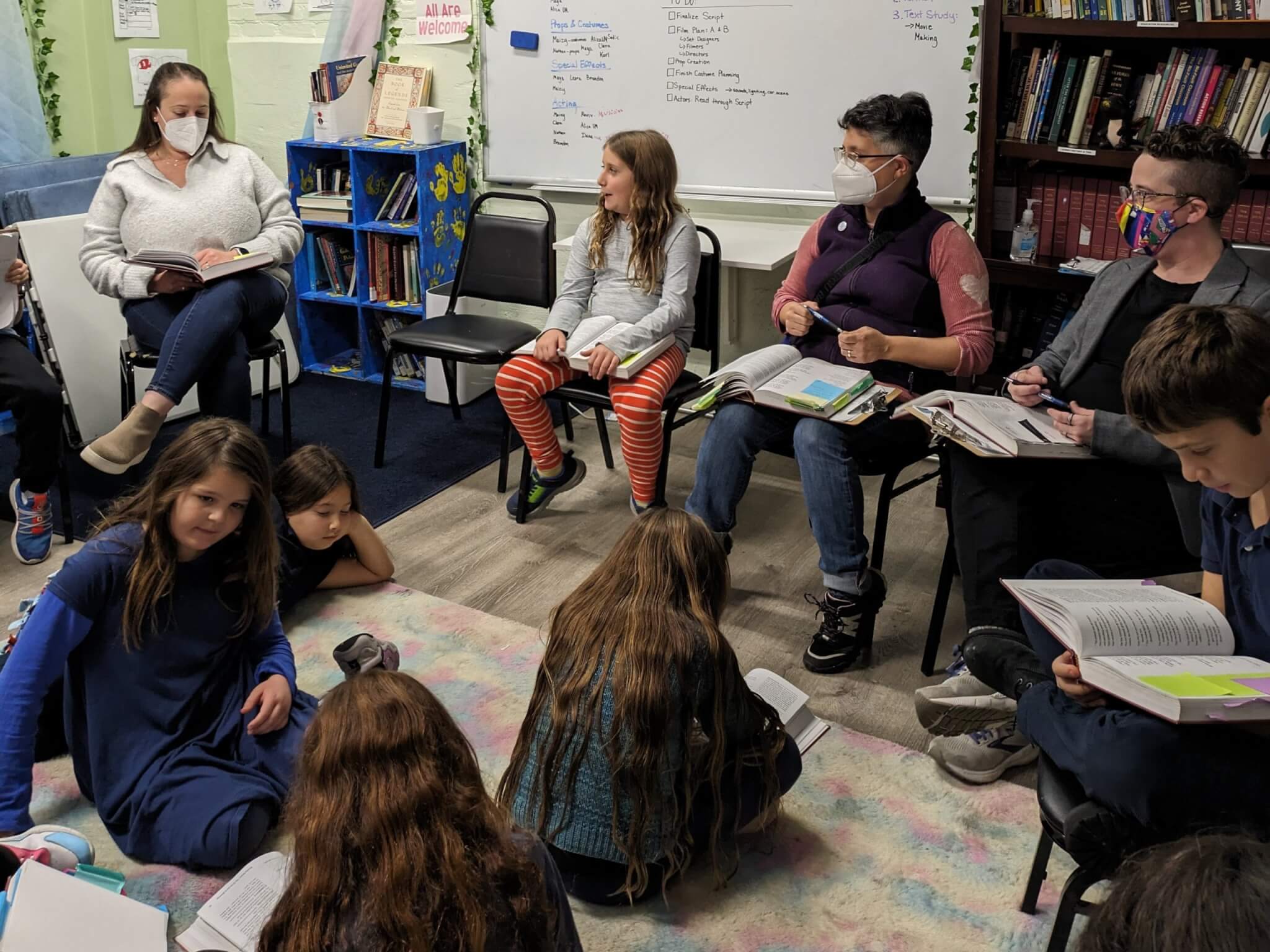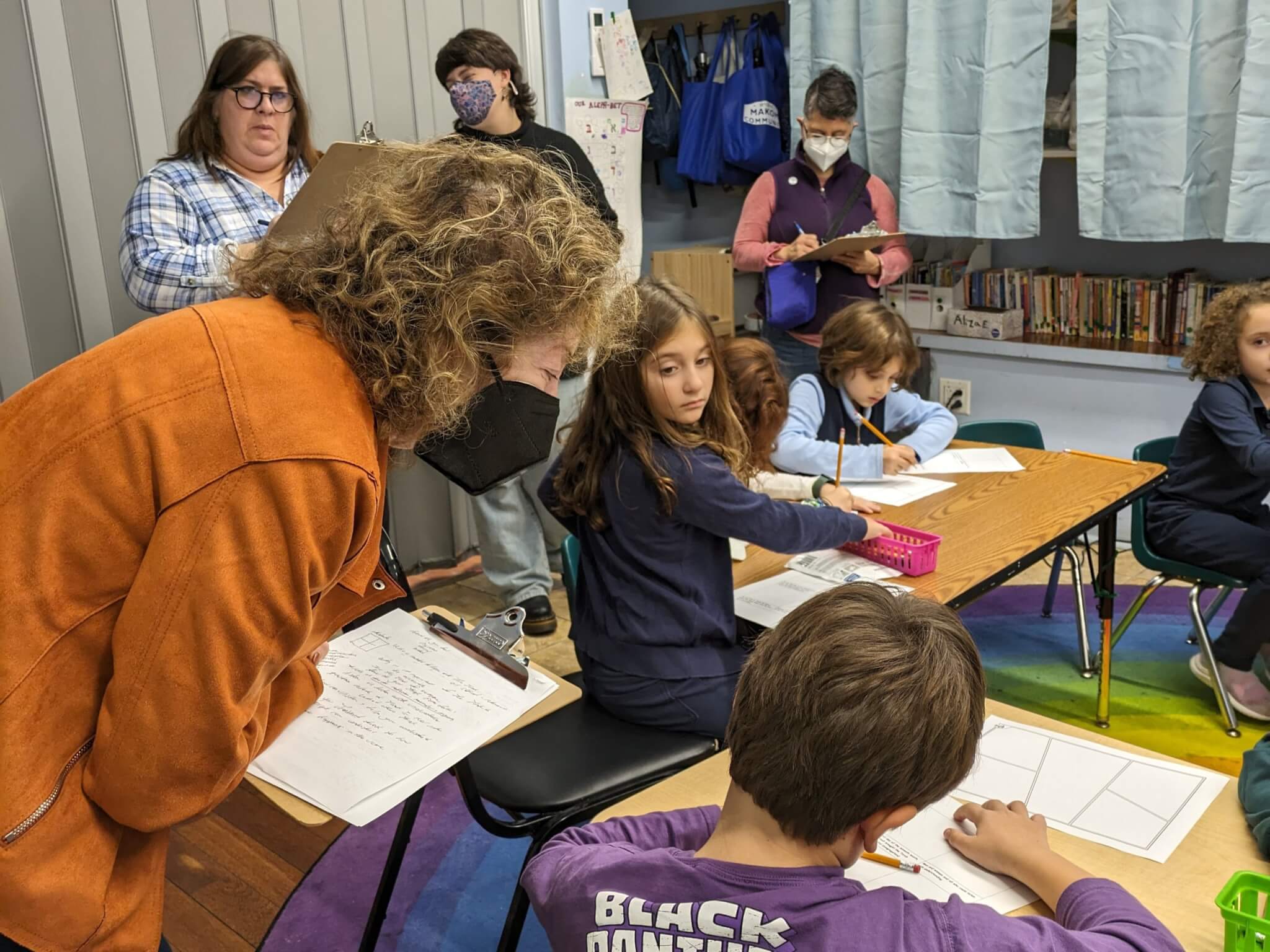
For the first time since designing our Makom Making Accelerator, we welcomed three Philadelphia-based Education Directors into our Lab School, to foster continued relationships with other education directors who are doing the holy work of Jewish education and engagement of Jewish families. We created a professional development experience for the directors of this year’s Jewish Placemaking Accelerator centered around observing our Lab School while our educators and learners explored Jewish wisdom through Jewish Placemaking. To help ground the experience, we set goals for our afternoon together around observing empathy in action. The goals were as follows:
- Education Directors will reflect on the holy work we are all doing to connect children and families to Jewish wisdom and how we are part of the arc of Jewish progress.
- Education Directors will be able to notice moments when educators and learners work together to identify and meet each other’s needs.
- Education Directors will notice when both educators and learners demonstrate empathy for each other and characters in the text.
- Education Directors will compare and contrast planned systems for empathy with responding with empathy in the moment.
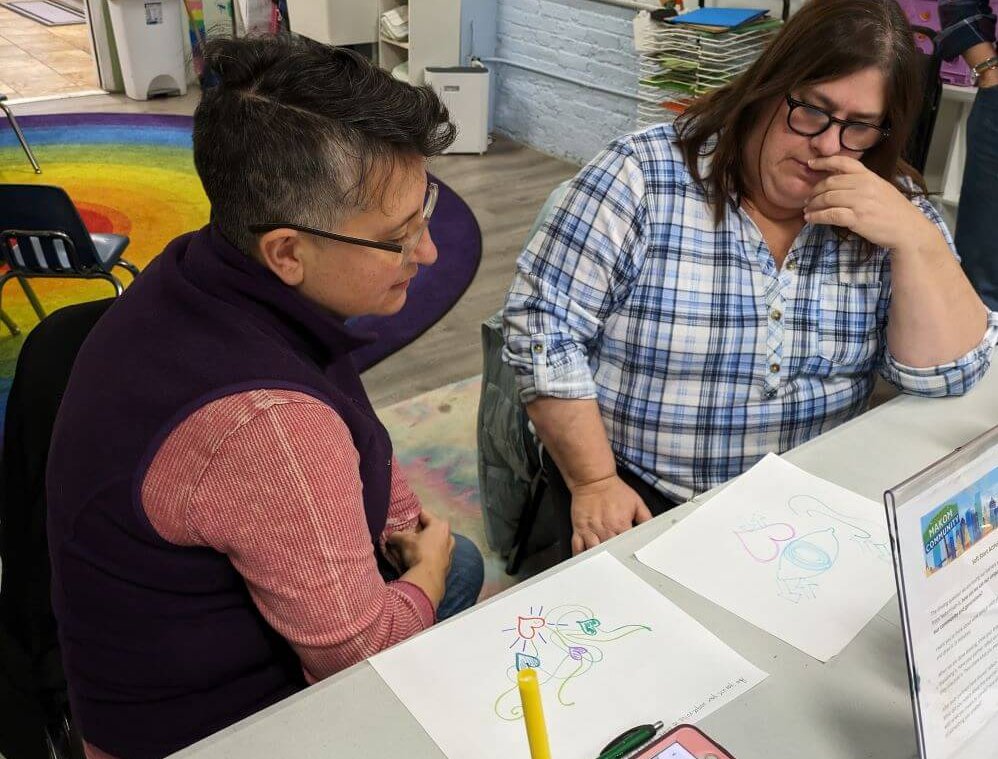
Above & Below: Visiting educators participating in a “soft start activity” in order to connect their personal voices in sharing Torah to our learner’s unit about Communication and the book of Nehemiyah.
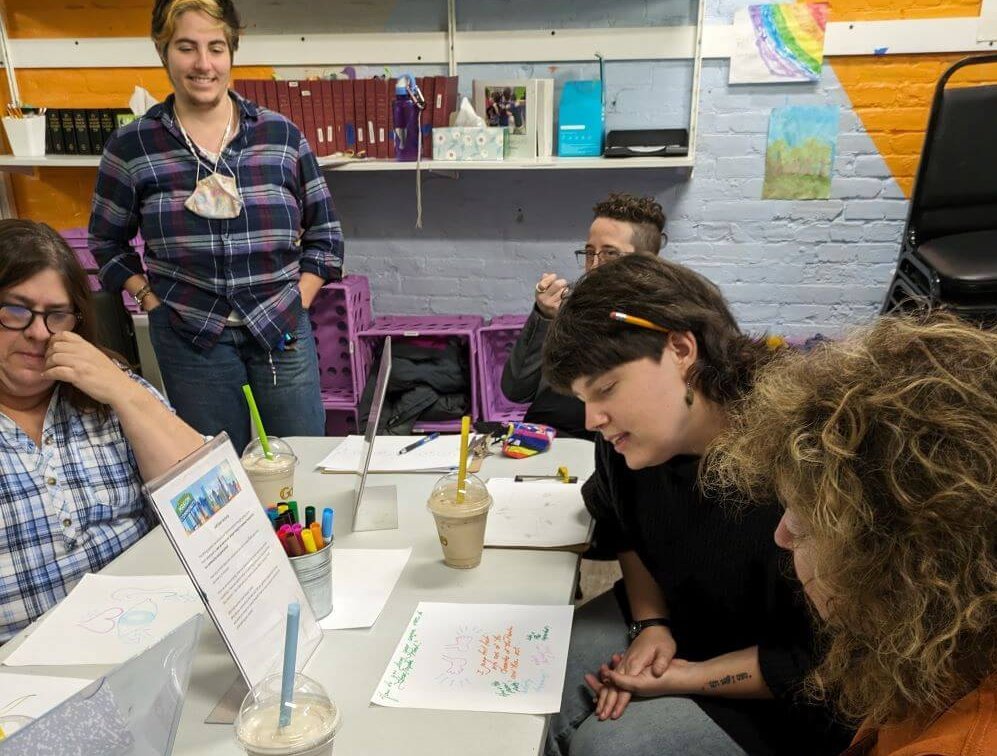
At Makom Community, our pedagogy of Jewish Placemaking, is grounded in our relationship with each other. This is why our first seminar and subsequent coaching for the Jewish Placemaking Accelerator was focused on Non-violent Communication, Social Emotional & Spiritual Learning, and Collaborative Problem-Solving. These three principles enable us to establish strong relationships with our learners and their families.
In the reflection session at the end of our time together, we asked our visiting educators, “When did you notice people working together to meet needs and when did you see empathy today?” They responded with what they noticed:
- the proximity between educators and learners for behavior redirection.
- that every voice matters, whether a learner raises a hand, or is resting under a blanket with sensory headphones, or needs a minute to process before answering.
- the use of gentle hands to redirect behavior or soothe an upset learner.
- the amount of water bottle refills and snacks for learners when they require it after a full day of school.
- Smooth, clear, and expected transitions between different activities in the day.
Below: Educator’s reflections after an afternoon of observations.
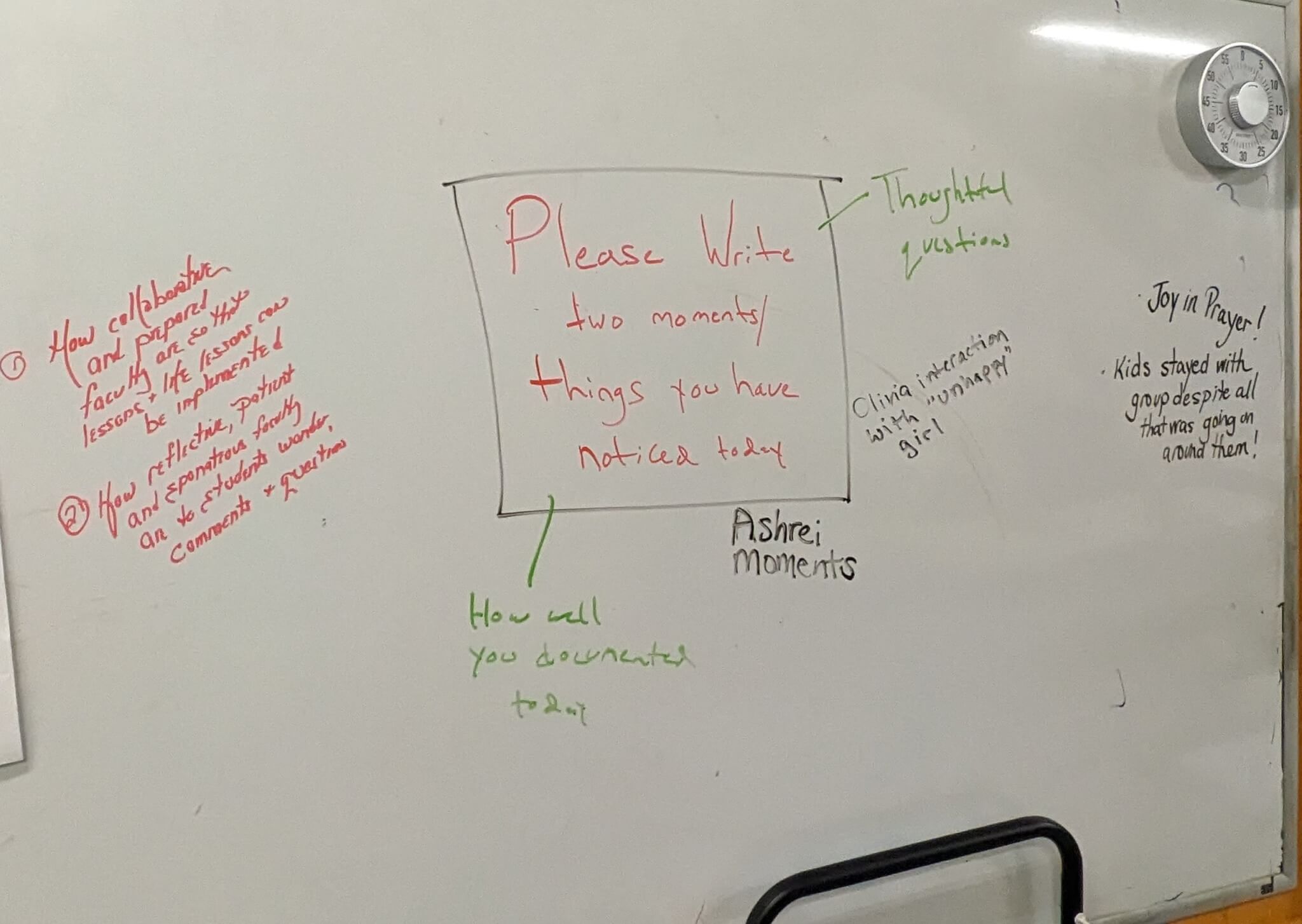
The final reflection was about our educator to learner ratio. At Makom Community we have a 1:6 ratio which is a huge factor in our ability to foster these relationships. Though Makom is a five day a week model, many of our education directors have eager teen teaching volunteers, madrichim, who are interested in being role models in the schools they grew up in! This is an underutilized asset in our Hebrew Schools. This role allows these teens grow themselves and feel more deeply connected to their Jewish community and identity. But, moreover, through their work as madrichim they’re also able to learn valuable education skills that can help young learners identify their own connections to Jewish traditions.
After reflecting together, we came to realize that these core moments of relationship building are accessible skills to teach to new educators and teen madrichim. Our Lab School is proof of this. When every educator in a school embraces the values of social, emotional, and spiritual learning, it creates a level of trust and empathy between learners and educators that empowers them to exist authentically and deeply investigate Jewish text.
Above: Did you know that Makom Community offers Professional Development training around Non-violent Communication, Social Emotional & Spiritual Learning, and Collaborative Problem Solving? Contact Terri Soifer, Makom Community’s Director of Strategy if you are interested in bringing this training to your community!

